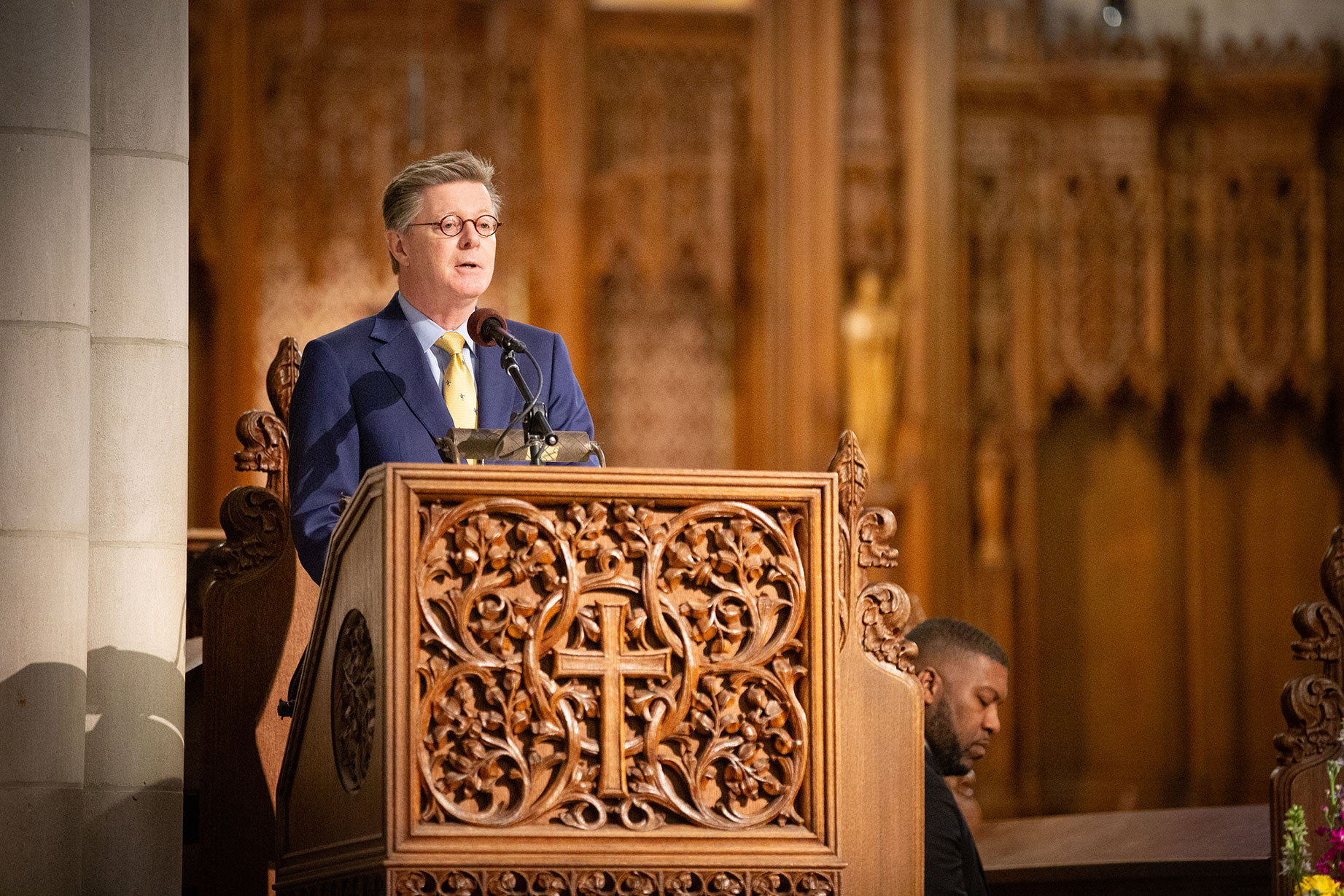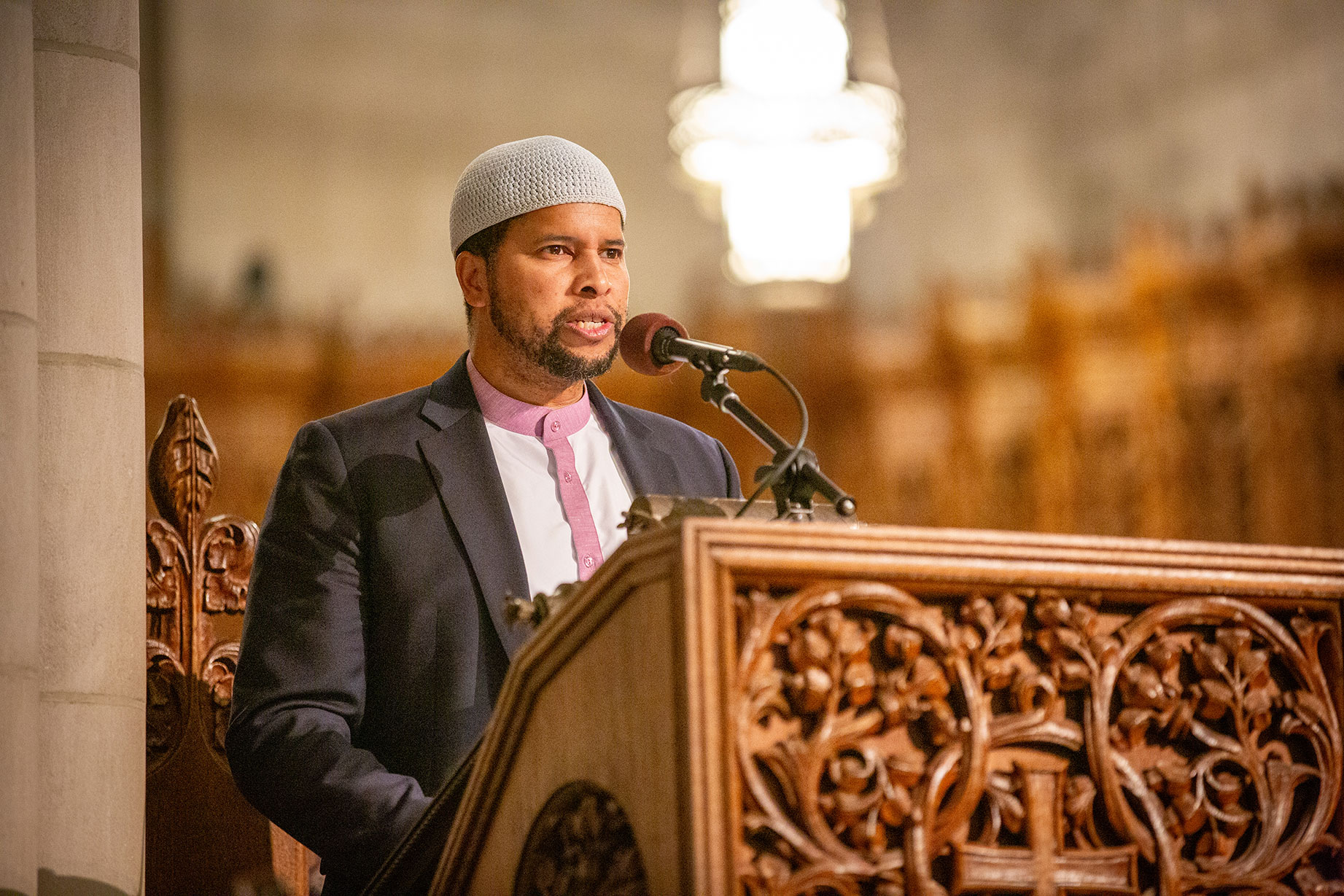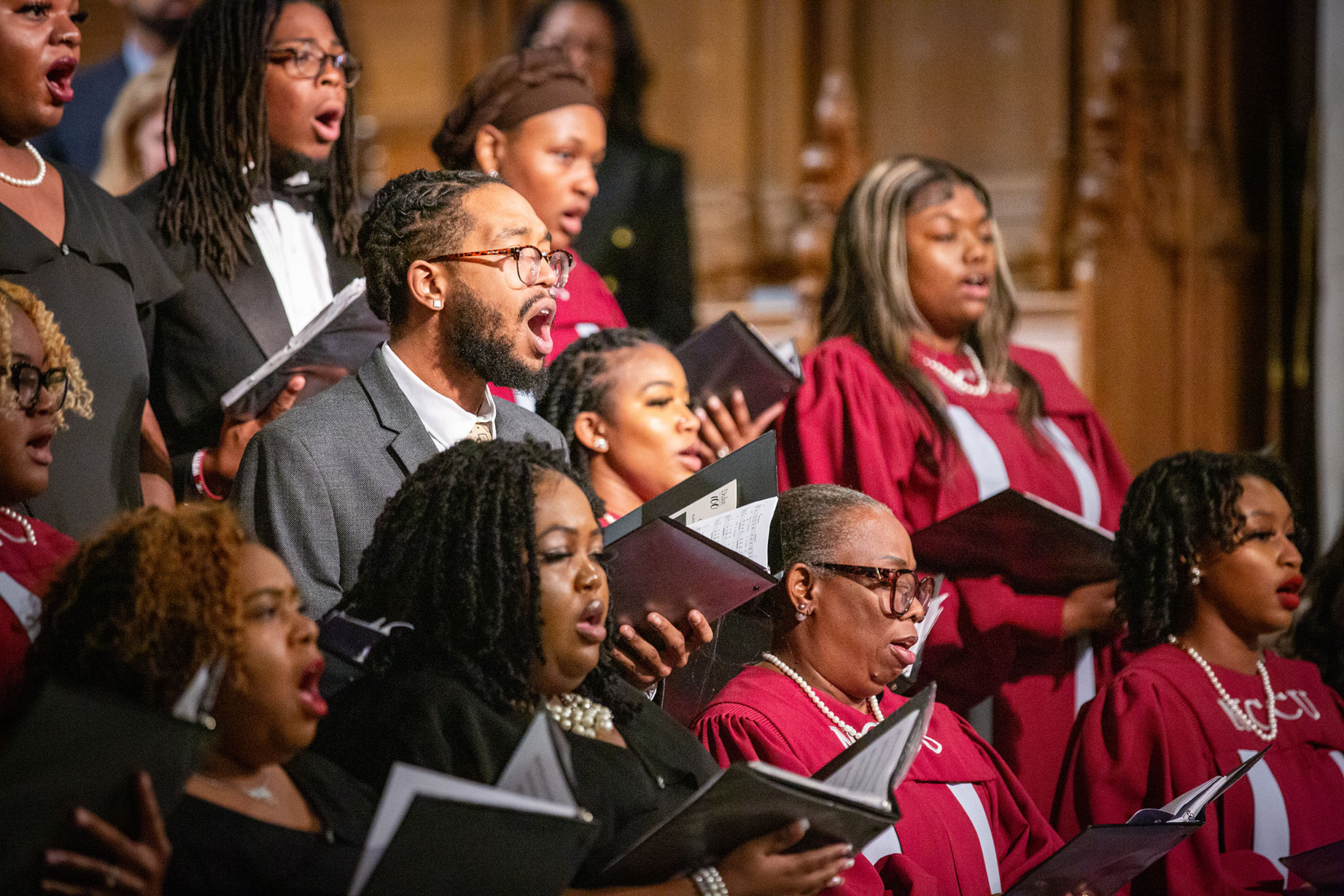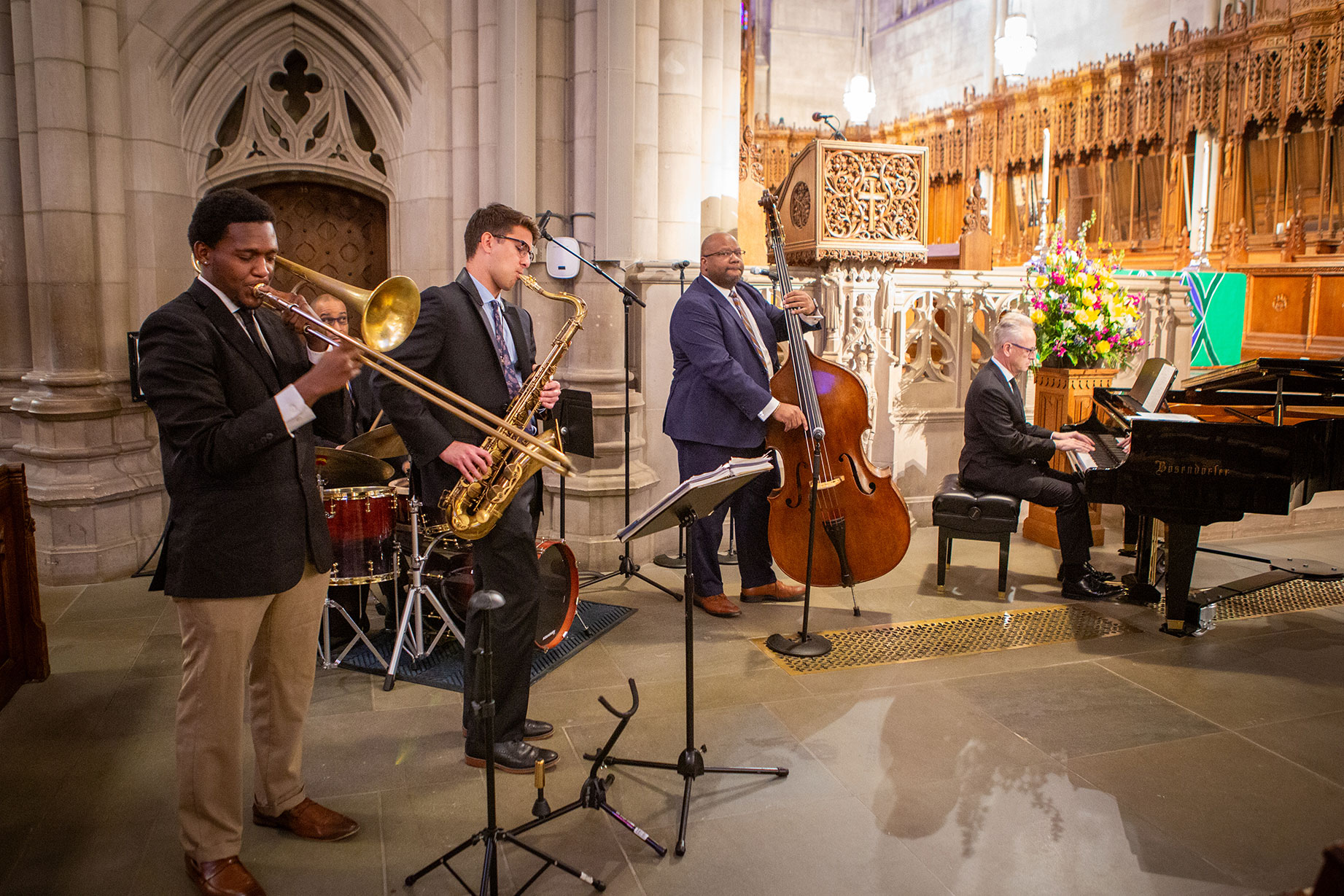A Call from Grant Hill to Use MLK’s Legacy to Unify the Community
University’s Martin Luther King Jr. commemoration was part of Duke’s centennial celebration


Hill’s remarks were the centerpiece of the Duke Centennial Martin Luther King Jr. Commemoration. With the theme of “Our Path to Progress: Realizing King’s Dream of True Freedom for All,” the event attracted a capacity gathering in Duke Chapel. (The full text of Hill’s address can be read on Duke Today.)
As a Blue Devil, Hill twice earned All-America honors and helped lead the team to back-to-back national championships in 1991 and 1992. He was elected to the Duke University Board of Trustees in 2021.

Hill acknowledged the history of Duke’s division from the larger community, particularly the African American community, and observed that “strong feelings about development, disparities and diversity have festered for decades.”
Hill reminded the MLK celebrants of a time in Durham’s history when the college and Black community worked interdependently in a manner that helped give rise to Durham’s “Black Wall Street,” and the North Carolina Mutual Insurance Company.
Hill recalled that W.E.B. DuBois, one of the architects of America’s Civil Rights Movement, credited the college as playing a significant role in the Black community’s success during that period.
Part of the university’s charge, Hill said, is a “responsibility to repair” those divisions in the nation and in Durham.
The multi-faith service included an invocation by the Rev. Dr. Luke A. Powery, dean of Duke Chapel, a prayer by Rabbi Elana Friedman, campus rabbi for Jewish Life at Duke, and a benediction by Chaplain Joshua Salaam, chaplain for the Center for Muslim Life.
Duke president Vincent Price also spoke at the event, as did Durham mayor Leonardo Williams; Mary E. Klotman, executive vice-president for health affairs and dean of the Duke School of Medicine; and student speakers Celeste Clark, ‘25, president of the Black Student Alliance, and Harvey Allen III, M ‘25, a third-year medical student and president of the Black Graduate and Professional Student Association.

Duke President Vincent Price delivered comments noting the relevance of Dr. King’s legacy to Duke’s values moving forward into a second century. 
Campus rabbi Elana Friedman delivered the “Sim Shalom,” a blessing of peace from the Jewish liturgy. 
Campus Muslim chaplain Joshua Salaam delivered the benediction.
Price noted that more than 60 years ago, in 1964, King was awarded the Nobel Peace Prize, and said during his acceptance speech that he had “the audacity to believe that peoples everywhere can have three meals a day for their bodies, education and culture for their minds, and dignity, equality and freedom for their spirits.”
That same year, King spoke to an overflow audience in Page Auditorium at Duke.
“That day in Durham, Dr. King advocated for taking a realistic perspective regarding whether or not – to use his words – ‘real progress was being made in the struggle to make the brotherhood of man a reality in our country,’” Price said.
King’s guiding words in 1964, Price added, “especially resonate at this moment in Duke’s history as we celebrate our centennial year.”
The charge, as the school begins its second century, is to combat systemic racism, and be steadfast in building a more just and inclusive university while “setting an example for a nation that promises freedom and justice for all,” Price said.
Duke’s John Brown Quintet and the North Carolina Central University Vocal Jazz Ensemble provided a nuanced musical backdrop to the celebration. NCCU’s Choir and Kizazi Alumni Chorale’s beautiful arrangement of “Lift Every Voice and Sing” was a highlight.
Known universally as the “Black National Anthem,” NCCU’s rendition of Lift Every Voice, written in 1900 by brothers John Rosamond Johnson and James Weldon Johnson, was arranged by noted conductor Roland Carter.
A choir member sent Carter a link to the performance.
“He was in tears,” the choir member said.
After his address, Hill stood in the Chapel designed by Julian Abele – an accomplished Black architect – and called the progress Duke has made over the past 100 years “incredible.”
“To think we accomplished all of this in a hundred years, compared to others who’ve been in existence much longer, is quite extraordinary,” Hill said.
Hill said he’s looking forward to the next 100 years in the Duke story.
“As we celebrate Dr. King, but also this centennial year, to be someone who has played a small role in moving it forward on the court, and I guess now in the Chapel, I’m truly, truly humbled.”
Watch the service on Duke’s MLK website.

The commemoration included performances from both Duke and N.C. Central University musical and vocal groups. Above, the NCCU Vocal Jazz Ensemble performed to acclaim from the audience. 
The John Brown Quintet helped set the tone by performing before the service and during the recessional.
